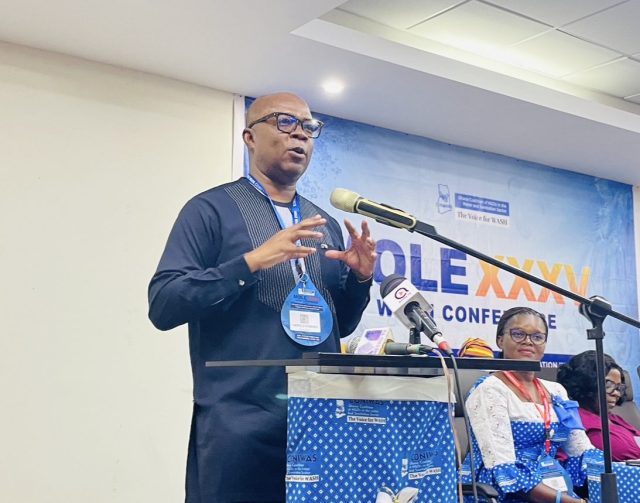An expert in water, sanitation, and hygiene (WASH) has said that Ghana has what it takes to get back on track and achieve the target 6 of the Sustainable Development Goals (SDGs) if the right steps are taken.
Harold Esseku, Senior Sanitation Specialist at the World Bank, made this assertion in the theme address for the 35th Mole water, sanitation, and hygiene (WASH) Conference (Mole XXXV WASH Conference) underway in Ho, the Volta Regional capital.
The 2024 edition of the annual conference is under the theme, “Looking Back on SDG 6 Implementation in Ghana: Progress, Challenges and Way Forward.”
“Can we meet the SDG targets? Yes, we can; Are we on track? No, we are not; Do we have what it takes to get back on track? Yes, we do,” Eng. Esseku said.
But to do that, the World Bank official, who is also the Development Partners’ Lead for WASH said it is imperative for Ghana to take the bull by the horn by introducing the necessary actions that will enable the country to meet the target.
He said Ghana needs to deal with the issues of funding, systems strengthening, as well as regulation and enforcement effectively to be able to get close to achieving the SDG-6 targets.
According to Eng. Esseku, although all Ghanaians acknowledged the critical nature of WASH to the country’s development with the Ghanaian president, who has been a co-chair of the SDGs on the global stage, recently signing the Presidential Compact on WASH, funding for the sector by the government is inadequate.
“Funding for WASH has been Development Partne- led for many years. This is not sustainable. It is my sincere hope that with the signing of the Compact, the government of Ghana will commit more of its internally generated revenue for funding of WASH,” he urged.
The official also urged the WASH sector to develop innovative financing mechanisms and target sources which have hitherto not been traditional funding sources for the sector, bearing in mind equity and sustainability as core principles.
While the sector needs to strengthen its systems to ensure sustainable and universal service delivery, he said the sector should also align and integrate all approaches into its policies, strategies, and coordination, emphasising that the views of all stakeholders are needed.
Since the sector needs a strong basis for planning and decision making, Eng. Esseku emphasised the need for a robust and functioning sector information system (SIS).
He cautioned, “The SIS should not be seen as an end in itself. Sector stakeholders including Development Partners, NGOs/CSOs, private sector, and government itself should take decisions based on data, rather than on other personal, social, and political considerations, which are mostly inimical to the sustainability of the services provided.”
The official urged the WASH sector stakeholders to ensure that their delivery of WASH services uses circular economy principles.
“The sector must ensure in planning that climate adaptation and mitigation measures are integrated. Infrastructure at all levels should be resilient to withstand the various climatic conditions and shocks,” Eng. Esseku advocated.















